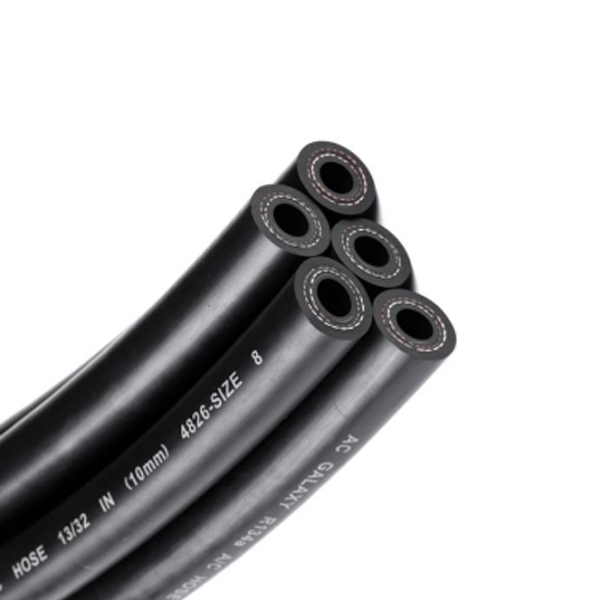heat resistant fuel line
Dec . 04, 2024 17:15 Back to list
heat resistant fuel line
Heat Resistant Fuel Lines Essential Components for High-Performance Vehicles
In the realm of automotive engineering, fuel lines are a vital component of a vehicle's fuel delivery system. As cars and trucks become increasingly advanced, the materials and technologies used in these systems must keep pace, particularly for high-performance vehicles and those operating in extreme conditions. One critical innovation in this field is the development of heat-resistant fuel lines, designed to withstand elevated temperatures while maintaining performance and safety.
The Importance of Heat Resistance
Fuel lines are responsible for transporting fuel from the tank to the engine. During this journey, they may encounter various environmental factors, including high temperatures generated by the engine, exhaust heat, and even ambient conditions, especially in racing or high-performance applications. If fuel lines are unable to withstand these conditions, the risk of fuel vaporization, leaks, or even catastrophic failure increases significantly. Consequently, manufacturers have invested heavily in developing heat-resistant materials that ensure the integrity and efficiency of the fuel system.
Materials Used in Heat-Resistant Fuel Lines
Traditional fuel lines have often been made from rubber or plastic materials that, while effective, may not offer the heat resistance required for modern applications. In contrast, heat-resistant fuel lines are typically constructed from advanced polymer compounds and metal alloys. Common materials include
1. Fluoropolymer Known for its excellent chemical resistance and high-temperature tolerance, fluoropolymer materials are often used in environments where traditional rubber or plastic would break down.
2. Nylon This thermoplastic material offers good resistance to heat and vibration, making it suitable for many automotive applications. Nylon fuel lines can also withstand high pressure, which is essential for maintaining fuel system integrity.
3. Stainless Steel In high-performance vehicles where durability and heat resistance are paramount, stainless steel fuel lines are often employed. They can handle extreme temperatures and pressures without compromising safety.
4. Silicone This material is appreciated for its flexibility and resilience at high temperatures. Silicone fuel lines are often used in custom automotive applications where high performance is necessary.
heat resistant fuel line

Applications in Automotive Engineering
Heat-resistant fuel lines are especially important in several applications, including
- Racing Vehicles In motorsports, engines operate at higher temperatures than standard vehicles. Heat-resistant fuel lines are essential to ensure that fuel remains stable and does not vaporize or leak under extreme conditions.
- High-Performance Cars Vehicles equipped with high-tuned engines generate considerable heat. Using heat-resistant fuel lines can prevent fuel problems that could lead to reduced performance or engine damage.
- Heavy-Duty Trucks Trucks operating in mountainous terrains or under heavy loads generate significant thermal challenges. High-quality fuel lines help maintain efficient fuel delivery and reduce the risk of failure.
- Motorcycles and ATVs Smaller vehicles often operate in environments where heat and vibration are prevalent. Heat-resistant fuel lines help prevent failures that could jeopardize not only performance but also rider safety.
Future Trends and Innovations
As automotive technology continues to evolve, so too will the development of heat-resistant fuel lines. Manufacturers are likely to focus on creating lighter, more durable materials that can withstand even higher temperatures. Additionally, the integration of smart technologies, such as sensors within fuel lines to monitor temperature and pressure, could revolutionize safety and performance, providing real-time data to optimize engine operation.
Conclusion
In conclusion, heat-resistant fuel lines are a crucial innovation in automotive engineering. By utilizing advanced materials and designs, these components enhance the safety, performance, and efficiency of vehicles, particularly in high-demand environments. As the automotive industry continues to push the boundaries of technology, the importance of reliable, heat-resistant fuel lines will only grow, ensuring that both everyday drivers and high-performance enthusiasts can enjoy their vehicles with confidence. As technology marches forward, we can expect further advancements that will not only improve existing systems but also pave the way for future innovations in vehicle design and performance tuning.
